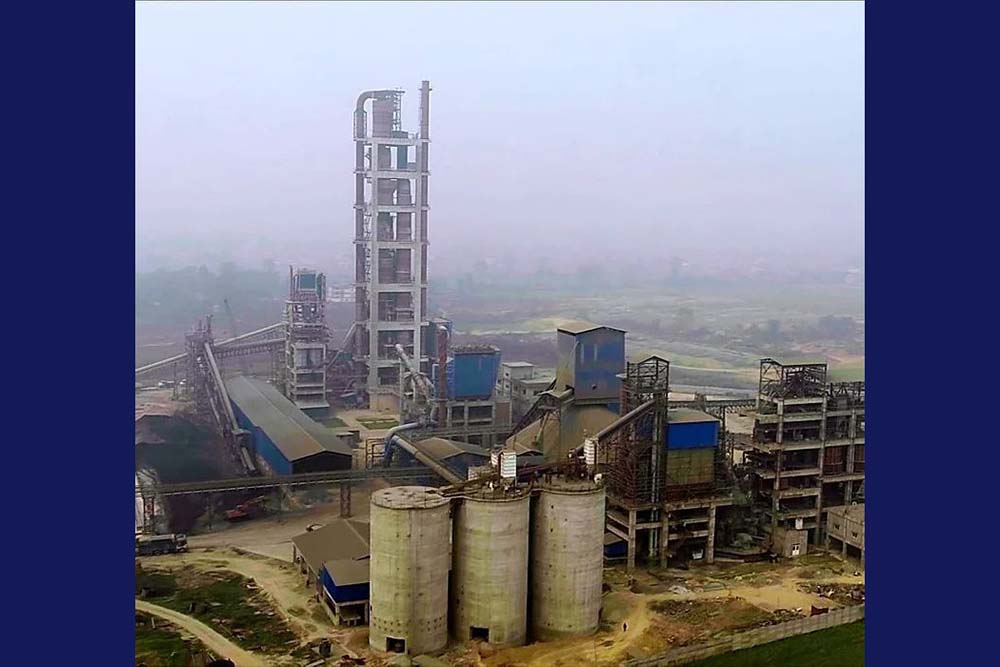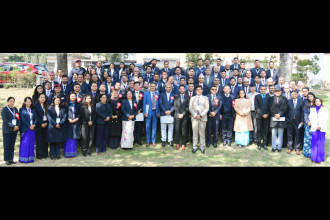
KATHMANDU: Palpa Cement Industry has started exporting its products to India since July 8.
The industry was established about five years ago and after the construction of its factory site started its production around three years ago. Immediately after production and placement in the market, the industry faced difficulties due to the coronavirus pandemic. Yet during such period, the industry was successful to meet demand from most of the districts in Nepal. Having its own limestone mine in Rahbas, Mathagadhi Rural Municipality-7 of Palpa district, the company has managed to maintain a significant presence in the market by producing quality cement.
Despite the government's commitment and efforts to promote reconstruction and development, the cement industry has long struggled to survive in the absence of a sufficient market for its products. There were various problems like shortage of electric power, raw materials, various short-term policies, economic issues, lack of skilled technicians, indirect taxes and royalties, high production costs.
The success of Palpa Cement Industry in exporting manufactured cement in such a short period of its establishment, despite several hurdles, is attributed to support from the government, confidence from consumers and the quality of its products being the main reasons.
Currently, there are more than 50 cement industries operating in Nepal. Among them, only 15 of them have been producing both cement and clinker. The annual production capacity of these cement industries is estimated to be around 22 million tons (two crores twenty lakhs tons).
The volume of production appears to be more than the current domestic demand. The cement industry seemed to be booming in the last few years as the government stepped up reconstruction work after the 2015 earthquake. More than half a million private homes and thousands of school buildings, heritage sites, health posts and other structures damaged by the earthquake have been rebuilt in the last seven years. These reconstruction activities boosted the demand for cement. Cement industries tried to address this rise in demand by increasing their capacities. With the government's commitment to expedite development projects and to address the demand from this reconstruction work, on one hand, new investors joined the race and on the other hand, existing industries increased their production capacities.
Completion of reconstruction work, slow pace of under-construction projects with no big projects being introduced in past few years, dull progress on ongoing projects and sluggishness in consumption by the private sector resulted in a constant loss to the cement manufacturers with the impression of endangering their existence.
The export of products manufactured in Nepal gives a good message that not only cement but other products are also worthy of a place in the international market. The export of products can be a good source of foreign currency, employment creation and a boost to the economy, the company said.
The cement industry has also praised the government for creating a positive environment through the recent budget.
On this opportunity, Palpa Cement Industry has expressed its appreciation and gratitude to all the government agencies, associations, mediapersons, locals, suppliers, sales managers/dealers, employees of all levels and other stakeholders, consumers, and the Government of India for trusting the industry.
READ ALSO:
Published Date: July 13, 2022, 12:00 am
Post Comment
E-Magazine
RELATED B360 National


-1770895116.jpeg)
-1770893438.jpeg)

-1770876049.jpeg)